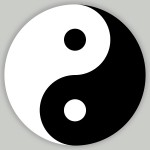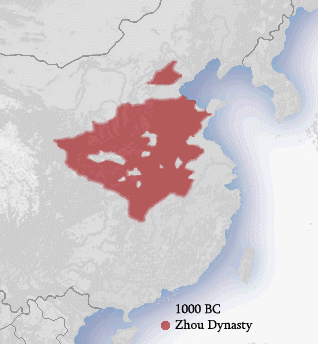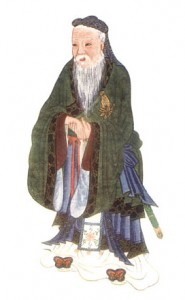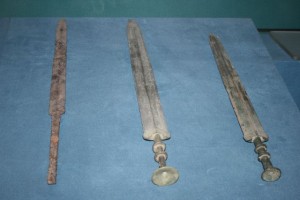Sometime before 1000 BC, a small nomadic clan took permanent residence at point in the Wei River Valley and there, built a town. This small town was the beginning of the world’s longest standing dynasty. The clan was named Zhou whose ancestry traces even farther back in time. They transformed the little town they started with into a centre for their rapidly growing influence and power. This steady rise to power and control climaxed with the overthrow of the Shang Dynasty.
The friction with the then rulers of the Shang Dynasty began with Jili, son of Danfu who led the Zhou Clan to where they made their foothold. Jili led his men in a battle against the reigning King’s vassal. He fought to the death and was succeeded by his son, who later became known as King Wen of Zhou. King Wen is one of the three revered leaders of the Zhou Dynasty. He pushed back the Shang army far enough but it was his son, King Wu who finally saw the Shang Dynasty to its end.
The Mandate of Heaven
These three men who started the Zhou Dynasty were revered and remembered as the ideal leaders of China. They legitimized their usurpation of the throne with the doctrine of the Mandate of Heaven. The doctrine basically says that whoever was the leader of the empire was placed there by the will of god. It is also a self-validating prophecy as the only proof of being undeserving of the throne is the fact that you were overthrown.
The doctrine preaches that “Tian” or Heaven, gives the “tianming” or mandate to rule upon the family that has been found to be morally apt for the duty. This was happily accepted by the people in light of the fact that the rulers of the Shang dynasty had greatly deteriorated morally and their citizens suffered depravity.
For better or for worse, this is how China thought of its leaders then. They believed that there was only one god called Heaven and kings were his sons. And this is why during the Zhou Dynasty, the empire was called the Celestial Empire: the only empire in the whole of China’s epic history to last for more than eight hundred years, from 1122 to 221 BC.
New Worship
The rule of the Zhou Family heralded many changes for the Empire, many of which were so popular that they still mark China up to today, more than one thousand years later. In divination and religious practices, human sacrifice in burials and rites were substantially lessened as new ways of worship were indoctrinated in the people.
The Birth of Confucianism
The Zhou dynasty was also a golden age for Chinese Philosophy. It was in this era that the famous Confucius (551-479 BCE) was born, which marked the birth of Confucianism. This is one of the most pervasive thoughts and doctrines the world has ever seen. It teaches neither of a god nor talk of an afterlife but preaches of a way to live one’s life with honor in duty.
The Birth of Taoism
 Taosim was also born during this age. The philosopher Lao Tsu founded the religion and taught of a naturalistic “path to life.” The religion was centered on the three jewels of the Taoist faith: compassion, moderation and humility. The “wu wei” or non-action was also born of this faith.
Taosim was also born during this age. The philosopher Lao Tsu founded the religion and taught of a naturalistic “path to life.” The religion was centered on the three jewels of the Taoist faith: compassion, moderation and humility. The “wu wei” or non-action was also born of this faith.
The empire also grew leaps and bounds in terms of agriculture. Agriculture and technology therefor improved enough to make agriculture produce China’s main food source in lieu of livestock or game. Hunting ceased to be a necessity and became merely a sport. This advancement came in the form of the use of field grid patterns which allowed the farmers to make better and more efficient use of the land. It also made irrigation easier and more systematic.
The Iron Dynasty
The use of iron also became popular during the Zhou dynasty. They used iron for almost everything including some very helpful tools which further improved their methods. They devised iron instruments which they used for animal drawn plowing and other things. The technology pertaining to iron in this era has been said to have preceded and exceeded that of the European regions. This dynasty learned how to make cast iron a good century before anyone did in Europe.
Advancements in iron technology also brought about many improvements apart from the agricultural ones. It greatly increased their army’s strength with the new weapons and protective gear they were able to create. This was very helpful in expanding the already vast reach of the empire.
Zhou Writings and Poetry
It was also during the Zhou Dynasty that the recording and documentation of history became more pronounced. The Books of documents is the first book written on Chinese history. There were also great historical literary pieces that emerged from this dynasty. The Classic of Poetry is a vast collection of poems, with some of them said to date from ass early as 1000BC. There was also the Zhou Li, the Zhou Rituals. It told of the duties of a man and the honourable way to carry them out.
The earlier part of the Zhou dynasty is called the Western Zhou. This was the empire father and son Wen and Wu. The center of the empire then was the Yellow River Valley and succession was based on kinship. While the empire expanded eastward, the center shifted in that direction as well and the Eastern Zhou was born. The new capital was moved in an area near what is now Luoyang. This was a time when the leaders were chosen based on an autocracy. This period also saw the beginning of taxation and forced labor. The empire had slowly fragmented into smaller kingdoms until in 481 BC, it was appropriately termed as an empire of Warring states. The once great empire was divided into three, the Wei, Han and Zhao. This was a time of feudalism and when a uniform currency was established to facilitate trade with farther regions.
The dynasty would remain divided and in constant internal dissent until the Qin Dynasty reunited it.


